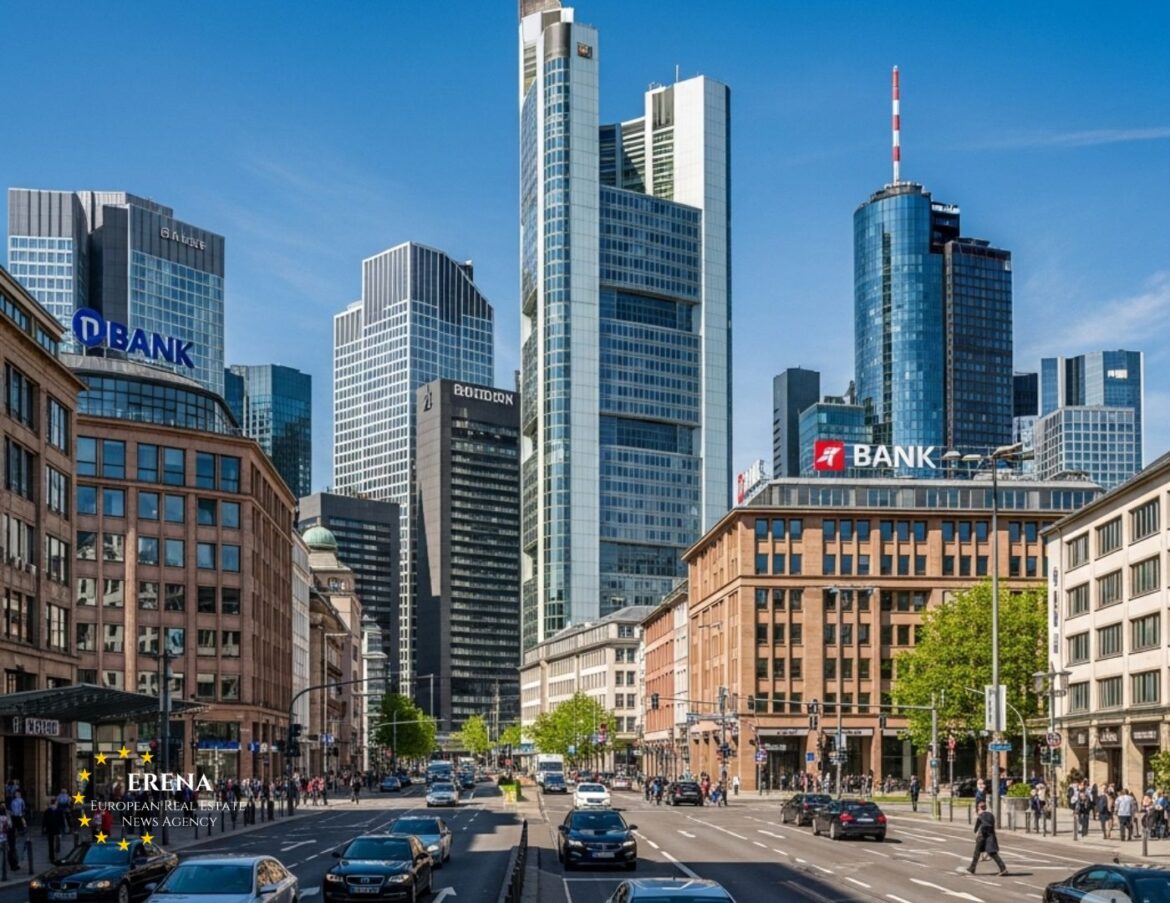The German banking sector is undergoing another wave of consolidation, and this time, one of the key players in real estate finance is in the spotlight — Aareal Bank. Landesbank Hessen-Thüringen, better known as Helaba, is considering acquiring Aareal Bank as part of a strategic overhaul of its commercial real estate lending operations. The potential deal could become one of the most significant transactions in Germany’s banking sector in 2025 and reshape the balance of power in real estate finance.
Deal Context: A Shift in Lending Strategy
Helaba’s interest in Aareal Bank was first reported by Handelsblatt, citing sources close to the negotiations. According to the report, the bank is exploring a potential acquisition of Aareal Bank or at least its key divisions focused on lending for commercial real estate — such as office buildings, hotels, and retail centers.
Facing mounting pressure on the real estate sector due to high interest rates and declining demand for office space, banks are rethinking their lending strategies. Helaba has been systematically reducing riskier assets in its portfolio for several years and is aiming to diversify its financing channels. Acquiring Aareal Bank would strengthen its position in major European cities including Frankfurt, Paris, and London, where Aareal already has established infrastructure and a strong client base.
Financial and Strategic Details
Aareal Bank is currently owned by a consortium of private investors, including Advent International, Centerbridge, and others, who acquired the bank in 2023 in a deal worth approximately €1.8 billion. Since then, Aareal has restructured its operations, reducing its international exposure and focusing on hotel and office real estate financing.
The value of a new deal has not been officially disclosed, but analysts estimate it could range from €2.2 billion to €2.7 billion, given Aareal’s improved profitability in 2024 and its solid market position. Considering the continued demand for high-quality real estate assets and Aareal’s stable balance sheet, the acquisition would offer Helaba a strategic advantage. As of 2024, Helaba held a real estate loan portfolio worth over €30 billion.
Impact on the Real Estate Finance Market
The potential merger could significantly alter the landscape of real estate lending in Germany and across Europe. Helaba has traditionally focused on the domestic market, while Aareal has a broader European and international presence. The merger would create one of the largest players in the sector, capable of competing with financial institutions such as Deutsche Pfandbriefbank, DZ Hyp, and UniCredit HypoVereinsbank.
For developers and investors, this may translate into increased competition for credit but also broader access to financing — especially for sustainable projects and properties with green certifications, which banks have increasingly prioritized in recent years.
Regulatory Oversight and Risks
The transaction would require approval from both the German financial regulatory authority BaFin and the European Central Bank (ECB). In recent years, regulators have tightened requirements for bank mergers, particularly when such moves may increase market concentration in sensitive areas like mortgage lending.
Potential regulatory hurdles include concerns over a “bubble” in the commercial real estate market, particularly given the rising number of loan defaults in the office segment. However, both Helaba and Aareal have emphasized in their reports a conservative approach to asset valuation and robust provisioning for potential losses.
Market Reactions
The market responded to the news with cautious optimism. Aareal Bank shares rose over 4% on the Frankfurt Stock Exchange following the publication of the report. Analysts from Deutsche Bank and Berenberg noted that the deal makes strategic sense, especially if Helaba focuses on integrating Aareal’s most profitable segments while maintaining the independence of key business units.
Labor unions at both institutions have voiced concerns over possible job cuts. However, Helaba representatives have assured that any restructuring would be carried out “as sensitively as possible” and with respect to social obligations.
Outlook for 2025
If the transaction is approved and successfully completed, the merged entity would gain access to a significantly broader customer base and bolster its position in emerging areas such as ESG financing, real estate IT solutions, and redevelopment loans for aging infrastructure.
Additionally, the merger is expected to generate cost synergies, streamline branch networks, and enable more efficient capital deployment. Profit growth could follow within the first two years post-merger.
Conclusion
The talks between Helaba and Aareal Bank represent more than just a potential merger between two financial institutions. They reflect deeper structural shifts within the European banking and real estate sectors. Amid changing demand, tightening financing conditions, and regulatory pressure, major players are seeking scale and stability to remain competitive.
For clients, developers, and real estate investors, this development could mark a turning point — signaling a new phase in the evolution of Europe’s real estate lending landscape.

